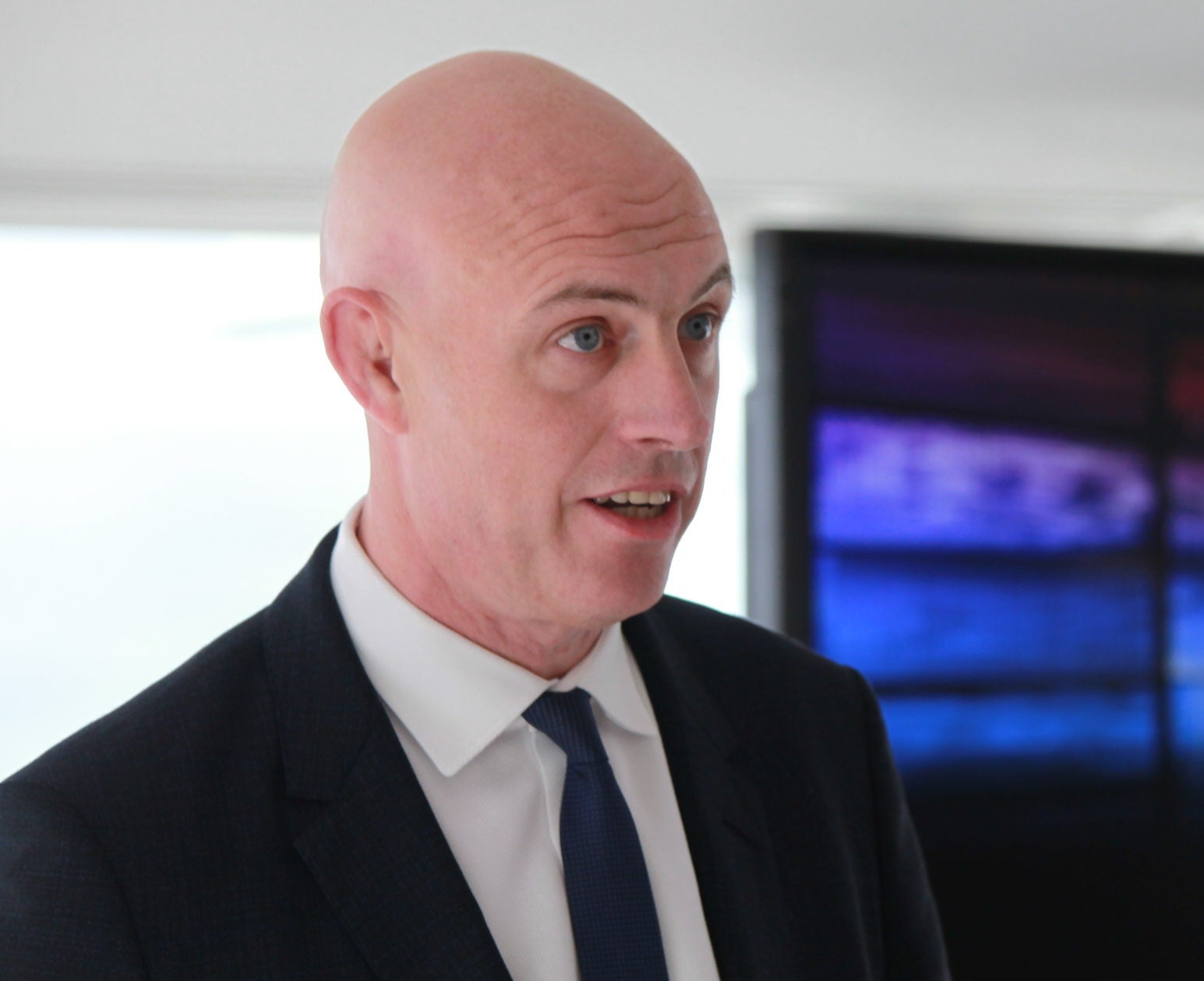
Top executives at News UK and DMG Media have bemoaned the fact Google and Facebook hold “all the power” in their business relationships as publishers’ feud with the tech giants continues.
News UK chief operating officer David Dinsmore (pictured) has told a House of Lords committee looking at the future of journalism that publishers get just “a tiny part of a tiny part of the whole thing” and that all they want is to level the playing field and get “fair value” for their content.
“In my experience of dealing with the platforms, you quickly discover that publishers are from Mars and platforms are from Venus,” he said.
Dinsmore pointed to the fact the tech giants can monetise an entire page or feed around a publisher’s content, whereas they only get a share when someone clicks through.
He also said the way their content is presented results in a “flattening” of brands so that “everything ends up looking the same, with the customer
saying ‘I saw it on Facebook’ or ‘I saw it on Google’ when it is the
publisher coming out with it in the first place”.
Peter Wright, editor emeritus at Mail and Metro publisher DMG Media, described it as a “complete imbalance” in a business relationship that means the platforms have “all the power”.
“We have to accept what terms they impose. Even the contracts that we sign to use their services are often presented to us on a take-it-or-leave-it basis.”
Peers put these allegations to representatives from Facebook and Google later the same day last week and pushed for an answer on whether they agree there is an imbalance of power in the relationship.
Edward Bowles, Facebook’s director of public policy for northern, central and eastern Europe, said: “We have no sense in which there is an imbalance of power. These are in themselves very large, powerful organisations.
“We have daily discussions about how they make use of our platform—and, obviously, we will contribute to the broader policy debate that this sits within, in a very open and transparent way.”
But Google’s government affairs and public policy manager Tom Morrison-Bell would only point to the “various ways in which we work closely with publishers to really help them to monetise”.
He said Google makes “very, very small amounts of money” on news-related queries through search and that the “value exchange is much more about us passing those readers on”.
He added that publishers keep the “vast majority” of revenues when they work with Google through its advertising platforms.
Google did announce plans last week to begin paying selected publishers for “high-quality” content, although it has not yet said when this might come to the UK.
Nevertheless DMG’s Wright told peers that various ad technology developments from the Duopoly do not actually help publishers, for example that although they can sell some of their own advertising through Facebook Instant Articles they cannot do programmatic.
And of Google’s unified pricing measures, he said: “However it is doing it, when you look at the outcome, a so-called reform benefits Google.”
Both Wright and Dinsmore praised the Australian Competition and Consumer Commission’s plans to force Facebook and Google pay publishers to use their content.
Wright said: “Even if the eventual agreements were modest, it would be transformational. It would be particularly transformational for the regional and local press, which will probably always have difficulty selling a lot of advertising online.”
And Dinsmore, whose parent company has a major presence in Australia, said that final-offer arbitration where each side gives a number and an arbitrator chooses the one it prefers would “very quickly get us to the market value of the content”.
Facebook argues that if it paid publishers each time they posted on its platform, this would incentivise clickbait stories of lower quality that would lead to a worse experience for its users.
Urging the UK not to get left behind, Dinsmore said: “To summarise what we are trying to achieve as an industry, it is to level the playing field of that regulatory piece and get fair value for our content out the other end of it.”
Press Gazette began to campaign for Google and Facebook to give publishers a fairer deal in 2017, repeatedly highlighting serious concerns about their dominance of the advertising market.
Since the House of Lords evidence sessions, the Competition and Markets Authority has called on the Government to create new powers to regulate the digital advertising market.
Picture: Press Gazette
Email pged@pressgazette.co.uk to point out mistakes, provide story tips or send in a letter for publication on our "Letters Page" blog
